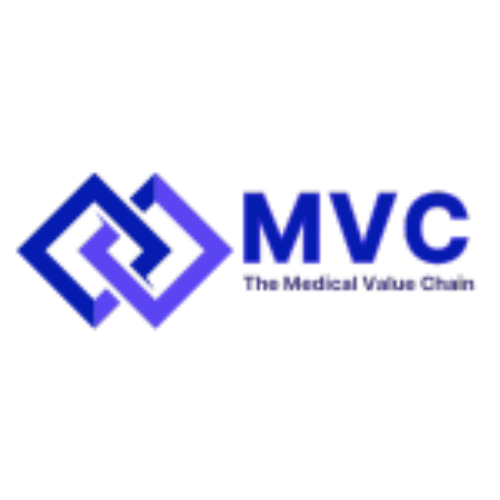
Transak
Transak is a global Web3 payment provider that builds developer-focused tools to bridge traditional finance with digital assets. The company’s core service is to enable users to seamlessly buy and sell cryptocurrencies directly within any decentralized application (dApp). This is primarily achieved through a simple, embeddable widget or API that developers can integrate into their platforms with just a few lines of code.
By handling the complex backend processes of payment processing, fraud monitoring, and regulatory compliance like KYC/AML, Transak solves a critical onboarding challenge for the Web3 ecosystem. It eliminates the need for users to leave a dApp, register on a centralized exchange, and manually transfer funds, which significantly reduces friction and improves user conversion rates. The platform supports a wide array of local payment methods across more than 150 countries, including credit/debit cards, bank transfers, and other regional options.
Transak is integrated with the Hedera network. This enables developers building on Hedera to provide their users with a direct and localized on-ramp to purchase HBAR and other Hedera-based tokens.
Project Information
Related Projects

Choice is a financial technology company founded in 2020 that offers a platform for investing in both digital and traditional assets within a tax-advantaged retirement account. The company's mission is to provide investors with greater freedom and choice over their retirement savings, breaking away from the limitations of conventional Individual Retirement Accounts (IRAs).
The primary service offered by Choice is a single, unified retirement account that allows users to hold a diverse range of assets, including Bitcoin, various other cryptocurrencies, stocks, and ETFs. This eliminates the need for multiple accounts to manage different asset classes. A unique feature of the platform is "Blinko," a game that allows users to win free Bitcoin daily, encouraging engagement and consistent saving. The app is designed to be accessible to all types of investors, from beginners to experienced traders, and supports various IRA types, including Traditional, Roth, and SEP, as well as Solo 401(k)s.

Medical Value Chain (MVC) is a Bahrain-based subsidiary of AVC Global. It provides a track-and-trace platform for pharmaceutical supply chains to ensure regulatory compliance and combat counterfeit drugs. MVC's innovative financial model is funded by the pharmaceutical industry, meaning there is no cost to governments or citizens.
MVC's core product is the SmartPass, a platform built on a dual-blockchain architecture that integrates with GS1 global serialisation standards. This technology creates a transparent and immutable record of pharmaceutical products as they move through the supply chain, from manufacturer to consumer. SmartPass is designed to provide "absolute transparency," protecting against counterfeit medications, improving supply chain efficiency, and reducing fraud. A key component of this system is the OneScan feature, which allows for the verification of product authenticity.
The company utilises the Hedera Consensus Service (HCS) to create a verifiable and auditable log of all supply chain events. This "dual immutable distributed ledger technology" provides a high level of security and transparency, ensuring the integrity of the data.

Taskbar is a decentralized freelance marketplace and gig-economy platform built on the Hedera blockchain network. It connects clients with freelancers for on-demand tasks and services in a more efficient, transparent, and equitable Web3 environment. It acts as an alternative to traditional freelance websites by addressing issues such as high commission fees and slow payment settlements.
Taskbar facilitates payments in HBAR, USDC, and other Hedera-based tokens, enabling near-instant settlement directly to a freelancer's wallet. A key feature is its on-chain escrow system, where funds for a job are locked in a smart contract and released automatically upon successful completion of the task, ensuring security for both parties. It also boasts a gamified reputation system implemented to build trust and incentivize positive user behavior.
To enhance transparency and trust, Taskbar utilizes the Hedera Consensus Service (HCS) to create an immutable and auditable log of all critical platform activities, including task creation, proposals, and reviews. This forms the basis of a verifiable on-chain reputation system for freelancers.

Certara is a global leader in biosimulation, a technology that uses computer models to predict how drugs will behave in the human body. Founded in 2008 and headquartered in Princeton, New Jersey, its mission is to accelerate the development of new medicines by transforming the traditional drug discovery and development process.
The company offers a comprehensive suite of software and services that are used by over 2,000 biopharmaceutical companies, academic institutions, and regulatory agencies in 62 countries. Certara's Simcyp Simulator, for example, is a physiologically-based pharmacokinetic (PBPK) modeling platform that is widely used to predict drug interactions. In addition to its software, Certara provides a range of consulting services, including regulatory science, market access, and medical writing.
Certara's OpenPharma innovation has developed a decentralized application called Hasharc that is built on the Hedera network and designed to address key challenges in the life sciences industry, such as supply chain security, patient safety, and regulatory compliance.
